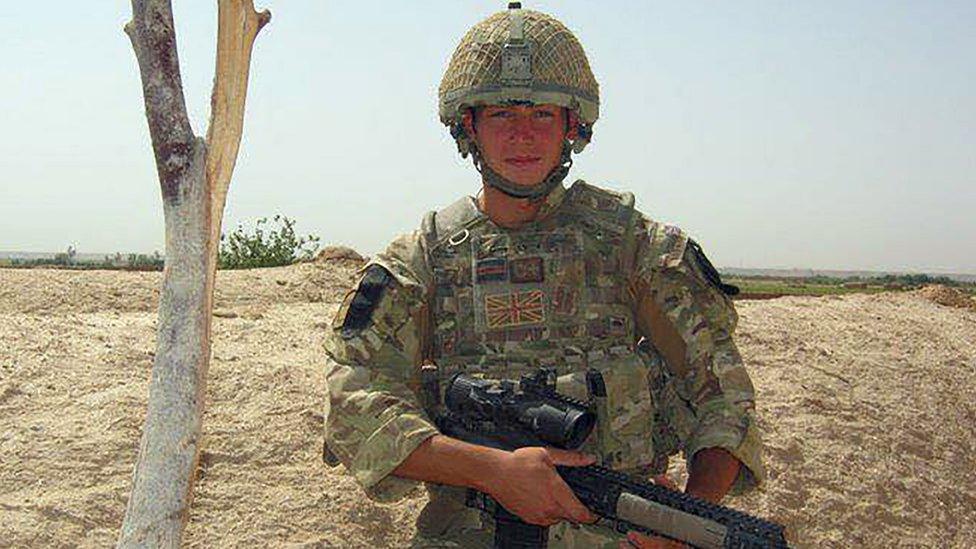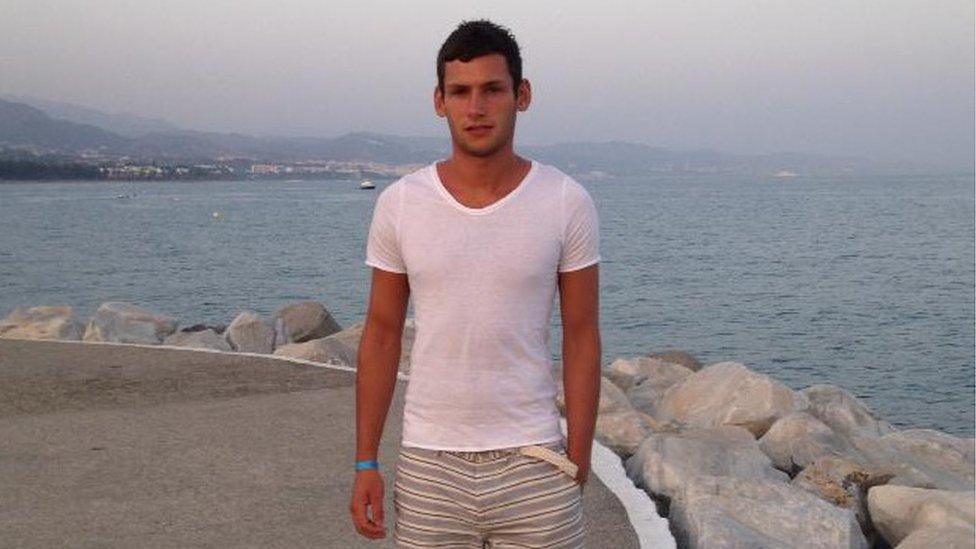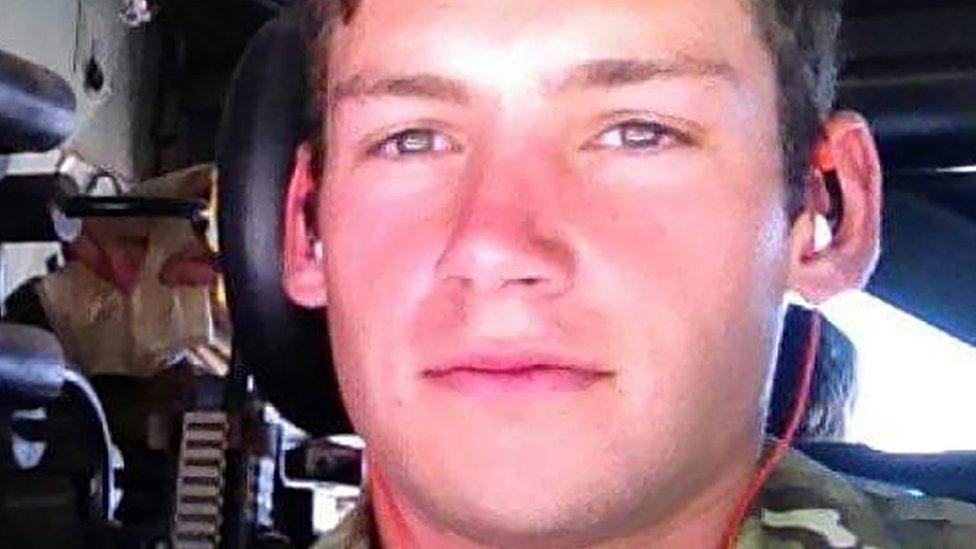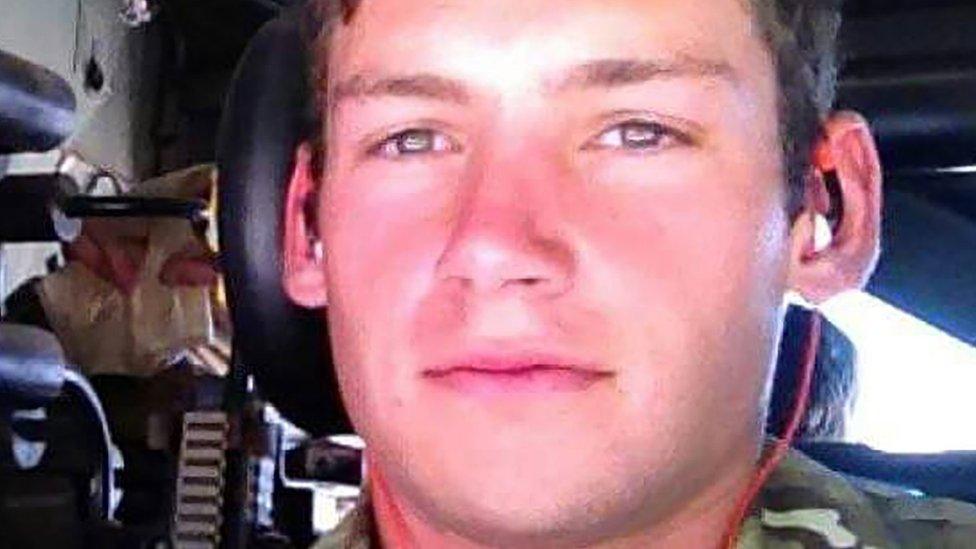Joshua Hoole: 'No temperature training' since soldier's death
- Published

Cpl Hoole joined the Army in 2008 and served in Afghanistan
Army instructors who misread a key temperature gauge before a soldier died in high temperatures have had no new training in its use, an inquest heard.
Cpl Joshua Hoole, 26, died within an hour of collapsing on a fitness march in Brecon, Powys, in July 2016.
A Birmingham inquest heard it was due to be "the hottest day of the year", but the gauge was located in the shade and gave an incorrectly low reading.
Cpl Hoole, of Ecclefechan, collapsed 400m from the end of the march.
The temperature gauge, at the Dering Lines base, was used to determine whether Army exercises should continue on hot days. It was only moved out of its shaded spot this year.
Annual fitness tests must not go ahead if the temperature reached 20C, the inquest was told.
Fitness instructors Cpl Owen Morris and Cpl Anand Gurung said they had not had any training on using the gauge since first qualifying in 2007 and 2005 respectively.
Cpl Gurung, of 1 Royal Gurkha Rifles, recorded the gauge reaching 17C at 07.10 and 17.3C at 08:00.
However the next reading at 10:00 - more than an hour after Cpl Hoole collapsed - was recorded by another instructor as 25.5C.
Barrister Richard Tutt, representing Cpl Gurung, asked: "If we hear evidence in due course of further training and enhanced tuition, you've not received any further training yourself?"
"No, sir," replied Cpl Gurung.

Cpl Hoole was described as "fit, capable and determined"
Mr Tutt said the direction by the then Secretary of State (for Defence) was that a sticker should be put on the gauge reading 'Attention, when using this WBGT to take daytime outdoor readings, make sure it is not shaded in any way from sunlight - it should be in any direct sunlight'.
Cpl Morris, still at Dering Lines, confirmed to the hearing there was no "attention" sticker on the gauge.
Of the 41 soldiers taking part in the assessment that day, 18 were forced to withdraw. They included Cpl George Knight, who "blanked out" into a hedge and Cpl Anasa Matau, who previously told the inquest he was told he had been "close to death".
A nurse who treated Cpl Matau's temperature after he was brought "slumped" on a wheelchair said it was 38.5C (101.3F).
Claire Bailey said: "I have never seen someone sweat so much.
"He was slumped in the wheelchair, he was sweating profusely and the medic with him, who was quite senior, was clearly concerned."
Senior coroner Louise Hunt asked her: "What was your immediate instinct as to what was wrong?"
"Heat," replied Miss Bailey.
Asked if that was "easy to conclude", she said: "Yes."
The inquest continues.
- Published9 October 2019

- Published7 October 2019

- Published4 October 2019

- Published1 October 2019

- Published13 November 2017

- Published22 July 2016
